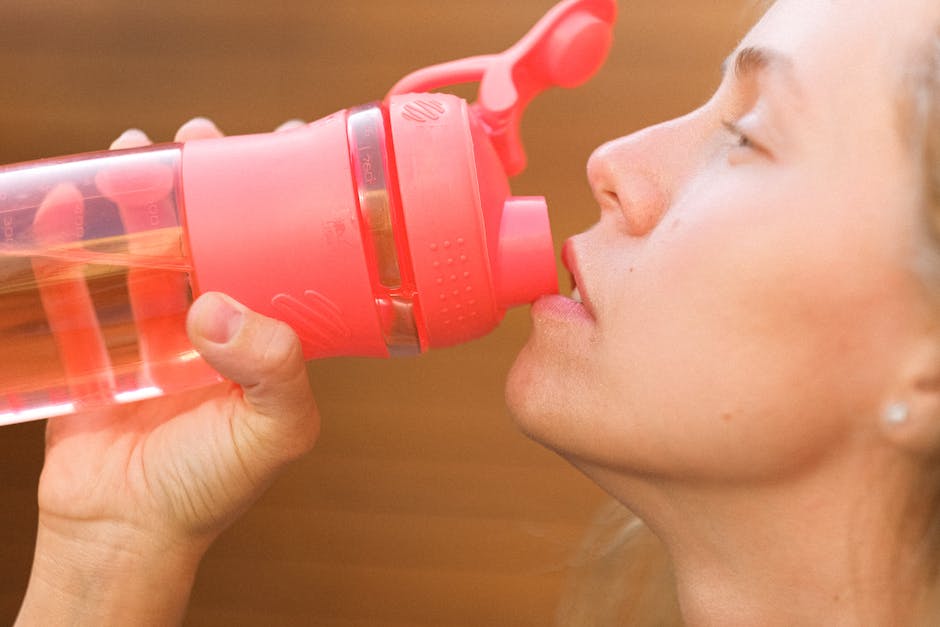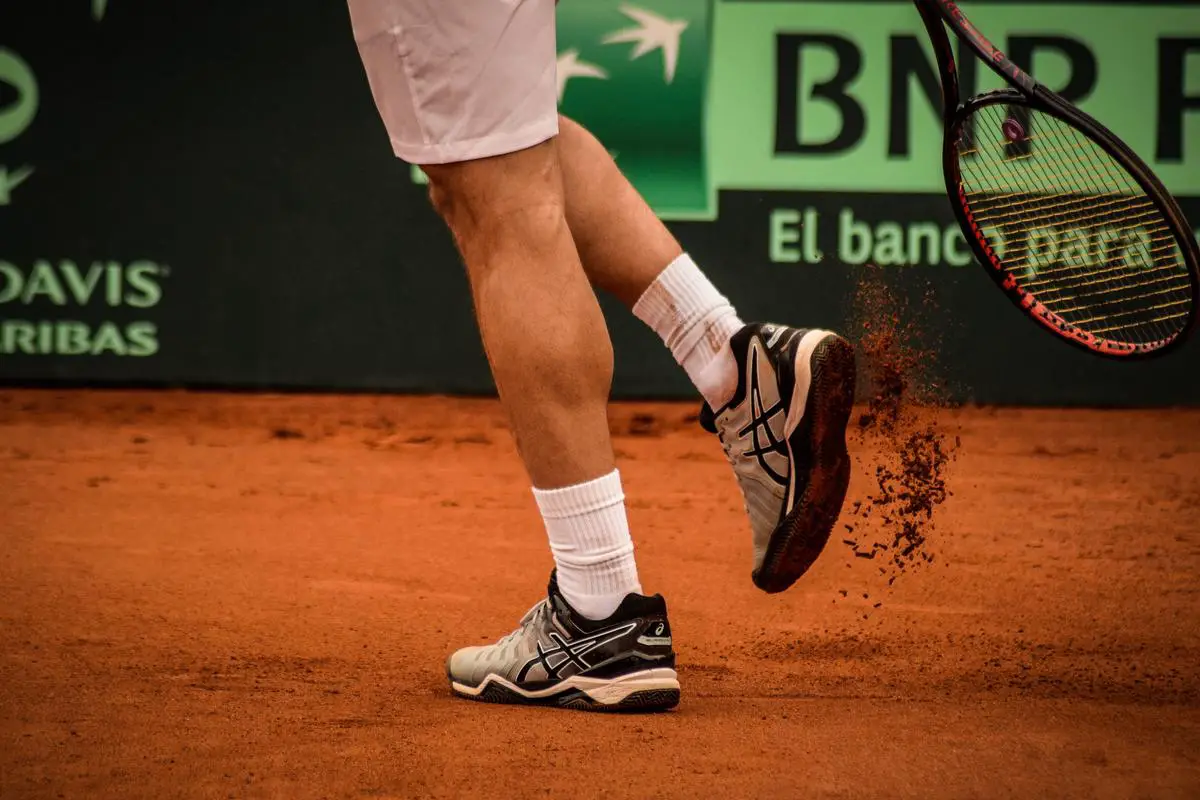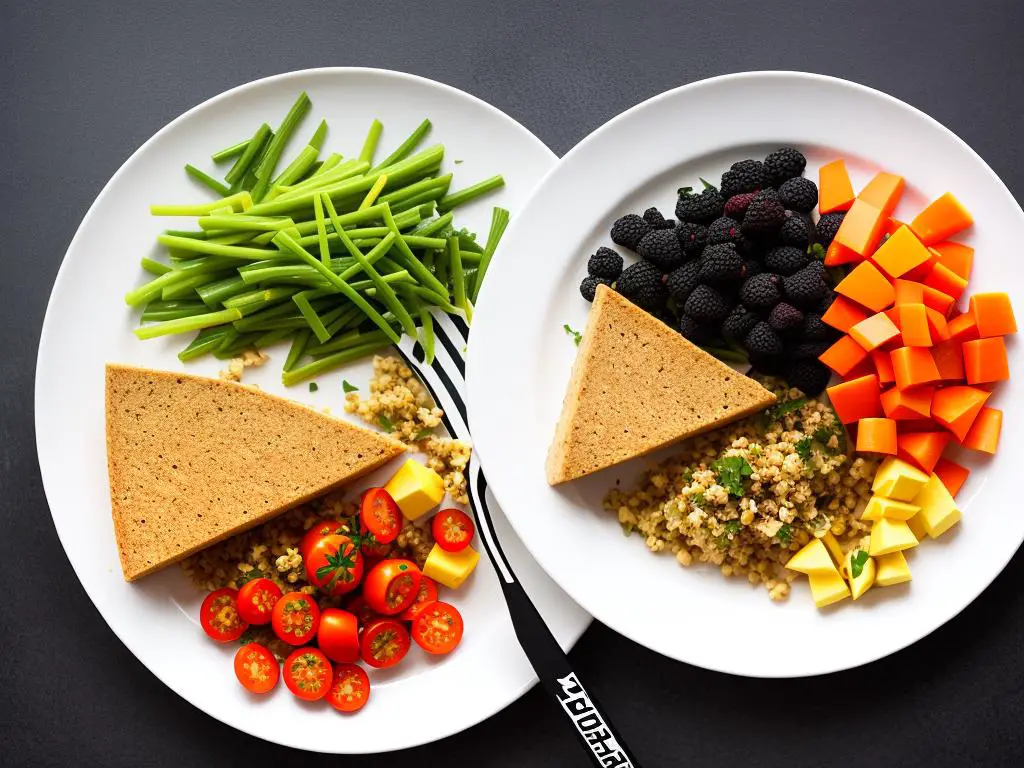Engaging in any sport necessitates a keen understanding of nutrition, and tennis is no exception. The physical rigor of tennis places unique demands on the body, making proper nutrition integral to not only performance and endurance, but also recovery. This essay provides a comprehensive look at the role of nutrition in tennis, pinpointing the optimal balance of key nutrients required by tennis players to perform at their best. Furthermore, this resource offers practical advice on proper hydration strategies and insights into what to eat before, during, and after a match or training session. By the end of it, one should be equipped with the knowledge required to tailor a nutritionally balanced, tennis-friendly meal plan to meet their individual needs.
Understanding the Importance of Nutrition in Tennis
The Ins and Outs of Tennis Nutrition: Importance and Benefits
Understanding the vital role of nutrition in tennis begins with recognizing the demands of the sport. Tennis requires high levels of physical endurance, speed, and agility. It’s characteristically intensive and entails both aerobic and anaerobic stress. To perform consistently and recover effectively, tennis players need an appropriately tailored diet that supplies the necessary energy and nurtures recovery.
Tennis, like any other endurance sport, requires a proper balance of carbohydrates, protein, and fats. Carbohydrates are the body’s main source of energy, essential for maintaining stamina during a long match. Protein helps in muscle repair and recovery, critical after intense training sessions or matches. Healthy fats contribute to optimal brain function.
One common mistake that tennis players make is not consuming enough carbohydrates. When carbohydrates are insufficient, the body starts utilizing protein as an energy source. This can potentially lead to muscle breakdown, as proteins are primary building blocks for muscle tissue. It’s vital that tennis players prioritize carbohydrate intake, especially before and after practice or matches, to maintain their energy levels.
Another typical nutritional pitfall among tennis players is dehydration. The sport often involves long durations of play, frequently in hot and humid weather conditions. This can lead to significant fluid and electrolyte loss. Drinking adequate amount of fluids before, during, and after playing is crucial, not only to maintain hydration levels but also to maintain performance and cognitive function.
Top Nutritional Guidelines for Tennis Enthusiasts
Whether you’re a professional tennis star or an ardent amateur, strategically managing your nutrition is key. Listed below are some essential pointers:
- Boosting Carbs: Consuming complex carbohydrates such as pasta or whole grains are important before matches to ensure energy levels don’t taper off midway.
- Upping Protein: To facilitate muscle recovery post-practice or competition, foods rich in protein including lean meats, poultry, fish, eggs, dairy products, beans, and legumes should be consumed.
- Staying Hydrated: It’s paramount to start hydrating a good two hours before stepping onto the court. Aim for roughly 500 ml of water or a sports beverage, and keep sipping throughout the game.
- Recouping Electrolytes: High-intensity tennis games can cause severe electrolyte imbalances due to sweat loss. To maintain balance and avoid fatigue and muscle cramps, sports drinks with electrolytes are advised during and after play.
- Pre-Match Meal Timing: Eschew large meals right before a game to prevent feeling weighted down. Instead, enjoy a substantial meal 3 to 4 hours prior, and opt for a light snack closer to the game start.
- Recovery Food: After the match, consume a balanced meal with carbohydrates, protein and healthy fats to hasten recovery and replenish glycogen that was lost during the game.
Player performance and recovery can be significantly improved by integrating these nutrition tips with their training. Remember always to tweak the nutrition strategy to suit the unique body types and specific demands of the tournament.

Key Nutrients and Their Impact on Performance
The Role of Carbohydrates in Tennis Performance
As a tennis player, carbohydrates are your go-to energy source. They are responsible for providing glucose, which powers your muscles and brain, crucial for both explosive power and sustained endurance. A consistent carbohydrate intake can maintain glycogen stores, which function as your body’s energy reservoir, allowing you to perform at top levels for extended durations. The variety of high carbohydrate foods you can choose from include pasta, cereals, rice, bread, fruits, vegetables, and potatoes.
Proteins and Muscle Recovery
Proteins are not a primary energy source, but they play a crucial role in muscle recovery and growth as they are required for repairing muscle tissue damaged during intense physical activity, like tennis. Consuming sufficient protein after a game or practice can speed up recovery time and aid in muscle growth. This can overall, lead to performance improvements over time. Good protein sources include lean meat, fish, eggs, dairy products, (especially Greek yogurt), beans, and legumes.
Fats: Essential but Limited
While often vilified, fats are essential to a well-rounded diet. They support many body functions, including vitamin absorption and hormone production. For athletes like tennis players, fats can serve as a valuable backup energy source when carbohydrates are not available. However, it’s essential to limit fat intake as an excess can lead to weight gain which might hinder performance. Focus on “good” fats like Omega-3 and Omega-6 fatty acids found in fish, nuts, and seeds.
Hydration: Maintain Peak Performance
Water is a crucial nutrient that tennis players should not overlook. Dehydration can significantly affect performance, causing fatigue, reduced coordination, and even muscle cramps. Tennis players should make sure they start playing well-hydrated and continue to consume fluids, especially water and sports drinks that replenish electrolytes, throughout their game to stay hydrated.
Vitamins and Minerals: Essential Components
Vitamins and minerals are essential components of a tennis player’s diet. Without them, your body won’t be able to perform optimally. For instance, iron is necessary for delivering oxygen to your muscles, while calcium and vitamin D are needed for bone health. Good sources of these nutrients include dairy products, lean meats, fruits, vegetables, and whole grains.
Timing: Consuming Nutrients at the Right Times
Apart from considering the kind of nutrients, timing when you eat is also crucial for optimal tennis performance. Eating a high-carb, low-fat meal around three hours before a tennis match can help top up the body’s glycogen stores. Post-game, consume a combination of carbohydrates and proteins to replenish energy stores and speed up muscle repair and recovery.
Understanding Personal Dietary Needs
As you dive into the world of tennis nutrition, it’s crucial to understand that everyone’s nutrient needs vary. Factors such as age, gender, body structure, and the intensity of your tennis game can significantly change your nutritional requirements. To maximize your tennis performance and ensure effective recovery, you should consider these factors and adjust your diet plan accordingly. A great way to get personalized dietary advice that accounts for these differences is by consulting with a sports nutrition specialist or dietitian.

Photo by gonchifacello on Unsplash
Pre, During, Post-Match Nutrition
Mastering Your Pre-Match Meal Plan
The goal of your pre-match meal is to fuel your body for the game ahead. Eating a balanced blend of carbohydrates and proteins about three to four hours before you play can do wonders. Carbohydrates are your source of energy, while proteins support muscle repair and growth.
Consider having a breakfast meal like a bowl of oatmeal topped with fruits or a whole grain toast with eggs – these are perfect pre-match meals. And if you’re pressed for time, going for a light meal or snack about an hour or two before your match, such as a banana with nuts, will still give you that much-needed energy boost.
Effect of Timing on Pre-Match Nutrition
Timing is a crucial factor in pre-match nutrition. Consuming a heavy meal just before a match can lead to discomfort and sluggishness due to the body’s focus on digestion rather than performance. However, the body needs ample time to process food into usable energy. Therefore, the recommended window of 1-4 hours before the match is most beneficial.
Hydration before a Tennis Match
Hydrating adequately before a match is also critical. Dehydration can severely impair performance. Aim to start your day by drinking 16-20 ounces of water and continue doing so before the game begins. If playing in hot conditions, opting for a sports drink that contains electrolytes can help maintain hydration levels better.
Mid-Match Nutrition and Hydration
During a tennis match, the main nutrition goal is maintaining adequate hydration and glycogen levels. Glycogen is the main source of energy during intense physical activities, and it depletes as you exert yourself. Consuming small amounts of carbohydrates during matches helps refill these glycogen stores.
Meanwhile, mid-match hydration is crucial to replace the fluids lost through sweat. Aim for 7-10 ounces of fluids every 10-20 minutes. Sports drinks are recommended especially for longer matches as they provide both carbohydrates and electrolytes.
Post-Match Nutrition
Post-match nutrition focuses on recovery. Immediately after a match, focus on rehydrating. You should aim to replace 150% of the fluid lost during the match.
Within 30 minutes of finishing, consume a meal or snack high in carbohydrates and protein. The carbohydrates will replenish your energy stores while the protein will aid in muscle repair and recovery.
Understanding the Value of Nutrition at Every Stage of a Tennis Match
Nutrition plays an integral part in your performance before, during, and after a tennis match. Good nutrition before a match provides the energy reserves your body needs to compete. Focusing on nutrition during a match is beneficial to sustain energy levels, maintain focus, and keep the body hydrated. After a match, the appropriate post-game nutrition aids in efficient recovery and replenishes energy stores for future matches or training sessions.
By strictly adhering to a comprehensive nutrition and hydration schema, you can significantly improve your performance in tennis, while also positively influencing your overall health and wellbeing.

Photo by khloephoto on Unsplash
Hydration and Its Importance in Tennis
The Unignorable Role of Hydration in Tennis Performance
For any sport, sufficient hydration is a mandatory aspect, and tennis is no different. Not only does it balance body temperature and lubricate the joints, but it also transports necessary nutrients all over the body. These factors are paramount for excellent performance during high-intensity activities such as tennis. In a sport that demands quick reflexes, agility, and endurance, overlooking the role of hydration can be costly. Dehydration in a player can lead to a decline in concentration, slower reactions, diminished strength, and it might also heighten the risk of injuries.
A Tennis Player’s Hydration Needs
Tennis players in particular need to pay close attention to their hydration status, given the intense demands of the sport along with exposure to the outdoor elements – heat, humidity, and direct sunlight during matches, which lead to high rates of sweat loss. An adult player may lose anywhere between 0.5 to 2 liters of fluid per hour depending on the intensity of the game and environmental conditions. It’s important to remember that the thirst signal often lags behind a player’s actual hydration needs. Hence, proactively hydrating at regular intervals during play is a must, instead of waiting to feel thirsty.
Hydration and Recovery
Hydration also plays a significant role in post-match recovery. It aids in replacing the fluids lost during the intense game, assists in the absorption and transportation of nutrients essential for muscle repair and recovery. Hence, immediately post-match, tennis players are encouraged to consume fluids that include electrolytes and carbohydrates which would help in restoring the lost electrolyte balance and refueling the muscle glycogen stores.
Strategies for Ensuring Hydration in Tennis
One essential tennis nutrition tip is to stay proactively hydrated. Tennis players should start hydrating several hours before a match or intense training session. Drinking small, frequent amounts of water throughout the day can help maintain a good hydration status. Additionally, drinking 500ml of water 2-3 hours before a match, and sipping on 150-200ml of water every 15-20 minutes during a game can prevent dehydration.
Incorporating sports drinks with carbohydrates and electrolytes can be beneficial during extended matches or training periods, as these solutions not only restore fluid balance but also provide an additional source of fuel and replace the electrolytes lost through sweat. Post-match, a beverage that contains carbs, protein, and electrolytes can help jumpstart recovery.
However, overhydration is also a potential risk. This can occur when a player drinks beyond their fluid loss, leading to a condition known as hyponatremia which might affect the player’s performance and well-being. Therefore, it’s important to understand and listen to your body’s needs, increase fluid intake during hot, humid conditions or long activity sessions, but also be wary of not going overboard.
Hydration and Player Health
Maintaining proper hydration in tennis isn’t only about performance and recovery. Chronic dehydration can negatively impact overall health as well. It may affect cardiovascular health, kidney function, and may increase the risk of heat-related illnesses such as heat cramps, heat exhaustion, or even heat stroke – a dire medical emergency. Particularly, sports like tennis played often in hot and humid conditions makes players more prone to such risks.
In Summary,
The concept of proper hydration proves to be a pivotal component of a tennis player’s health and nutritional regimen. It’s about creating a harmonious balance tailored to one’s personal requirements and prevailing game conditions. This ensures not only optimum performance level but also aids faster recovery and prime health.

Creating a Tennis-Friendly Meal Plan
Nutritional Insights for Tennis Players
Given the intense nature of the sport, tennis necessitates top-notch physical stamina and endurance. As a result, the diet a player maintains plays a crucial role in influencing their game. A diet plan beneficial for tennis is never a shared solution for everyone; instead, it must be custom-made to each player, addressing their unique nutritional demands and considering their personal food choices.
Balancing Nutritional Needs with Personal Preferences
In constructing a tennis-friendly meal plan, a balance must be struck between nutritional needs and personal preferences. Tennis players require higher amounts of carbohydrates to fuel their muscles during long, intense matches. Proteins are needed for muscle recovery, especially after rigorous training or games. And fats help to sustain energy levels over time. Therefore, meals and snacks should be rich in these nutrients.
However, a meal plan will not be effective if it doesn’t incorporate food items that the player genuinely enjoys eating. Understanding personal food preferences can encourage more consistent adherence to the meal plan. You can integrate nutritious alternatives to favorite dishes by using healthier preparation methods or substituting less healthy ingredients.
Portion Control Advice
Portion control is another important aspect of a tennis-friendly meal plan. Overeating can lead to weight gain, which can impact agility and speed on the tennis court. Conversely, under-eating can result in low energy levels and diminished performance.
The portions of carbohydrates, proteins, and fats should be balanced with the physical demands of the tennis activities planned for the day. On days with heavy training or matches, larger portions of carbohydrates and proteins are needed to fuel and recover muscles. On rest days, caloric and carbohydrate intake should be adjusted downwards to avoid unnecessary weight gain.
Integrating the Nutritional Plan into Lifestyle
The key to successfully integrating a tennis-friendly meal plan into a player’s lifestyle lies in planning and preparation. Meal prep is an effective strategy that ensures nutritious food options are readily available, especially during busy days. Also, having a regular eating schedule can help regulate metabolism and prevent overeating.
Drinking fluids, especially water, is a crucial part of any nutritional plan for tennis players. Adequate hydration affects a player’s concentration, endurance, and overall performance. Therefore, players should make a habit of drinking fluids before, during, and after matches or training.
Considering social and cultural aspects can make integrating the meal plan easier. For example, if a player comes from a culture where communal meals are important, then the meal plan should include options that can be shared with others. Similarly, if dining out with friends or family is common, the meal plan should guide the player towards smarter food choices while eating out.
Finally, a tennis-friendly meal plan should be seen as a part of a broader healthy lifestyle. Alongside well-planned meals, sufficient sleep and regular physical activity (other than tennis) are important contributors to overall health and tennis performance. Players should aim to incorporate these factors into their lifestyle too.

Though this resource provides a guide, it’s critical to remember that the nutritional needs of every tennis player may vary. It depends on factors like their age, weight, gender, and level of physical activity. The key takeaway is, understanding and fulfilling one’s nutritional needs can significantly boost performance, endurance, and recovery in tennis. So, whether you’re a seasoned professional or an enthusiastic amateur, re-evaluating your dietary habits, focusing on sufficient hydration, and creating a custom meal plan could take your game to the next level. Here’s hoping that the insights provided in this comprehensive guide will serve as a practical road map towards achieving your tennis goals through smart and effective nutrition strategies.